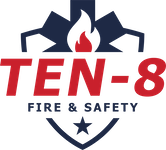Are you ready to make some decisions?
B. Keith Chapman, President & CEO
Researchers at Cornell University estimate that the average adult makes around 35,000 decisions per day. Most of these are quick, easy and do not require much thought. A smaller number of them will likely require a minute or two of contemplation. However, a couple will inevitably bring steeper consequences if a bad decision is made. For example, the decision of whether or not to order the hamburger instead of the salad has consequences, but not to the extent of making the wrong career move.
As we approach the closing of one year and the beginning of another, we can celebrate the good decisions and learn from the bad ones. We will never escape the responsibility of decision making no matter how hard we try. So, having a decision-making process can be helpful. Wilferd A. Peterson once said, “Decision is the spark that ignites action. Until a decision is made, nothing happens… a decision is the courageous facing of issues, knowing that if they are not faced, problems will remain forever unanswered”. Bottom line – there is no action without a decision. Yet, if a decision is made too quickly it can likely lead to negative consequences. Like many things in life, decision making is a bit of a balancing act, balance between knowledge and action.
Proverbs Chapter 19 makes several points that are directly applicable to how we should make decisions. It states, “Enthusiasm without knowledge is no good; haste makes mistakes (vs 2). Get all the advice and instruction you can, so you will be wise the rest of your life (vs 20)”. These verses make it clear that quick decisions without adequate knowledge can be problematic. Furthermore, advice and instruction makes you wise. So, here are the tough questions to ponder – Do you make decisions based on emotion without all the facts? Do you get defensive when you receive advice and constructive feedback? I would suggest that all of us would have to answer YES to both of these questions at some point in our lives. When we recognize that these natural tendencies are counterproductive to good decision making, we can significantly increase our ability to make good decisions.
Time is a critical stressor of decision making. I have learned, sometimes the hard way, a tough decision rarely has to be made immediately. Of course, the exception to this observation is emergency/crisis management. Decision making in this situation follows a different process involving the prioritization of life safety. However, in non-emergency decision making, proper balance involves not unnecessarily delaying the decision just because you don’t want to make it. One strategy is to ask yourself, am I delaying the decision because I don’t want to deal with potential consequences, or am I gathering key knowledge that will help with the decision? Part of the knowledge gathering process could involve seeking advice from mentors and colleagues. However, if you are not gathering information to help make the decision or seeking advice, then it is likely time to make the decision.
You will also find that people who are open to advice and constructive feedback are better decision makers. They tend to self-analyze and make adjustments to their mode of operation, including their decision making. You don’t have to always agree with the feedback you receive, but it certainly gives you an understanding of others perception. This insight helps to weigh the impact of your decisions on others. Leaders are often tasked with making decisions that impact more than just themselves. As such, gathering knowledge through feedback is invaluable.
Challenge: Develop a decision-making process that has a proper balance between knowledge and action. Seek advice from wise council and remain open to feedback. Never forget your decisions will have a positive or negative impact on those around you.
Published: December 2018




